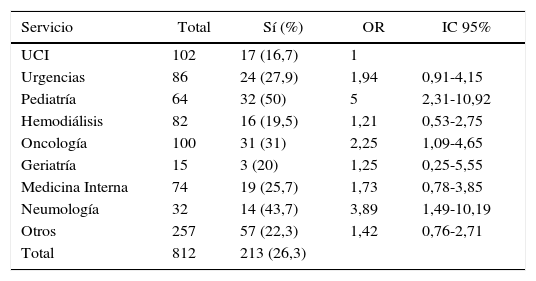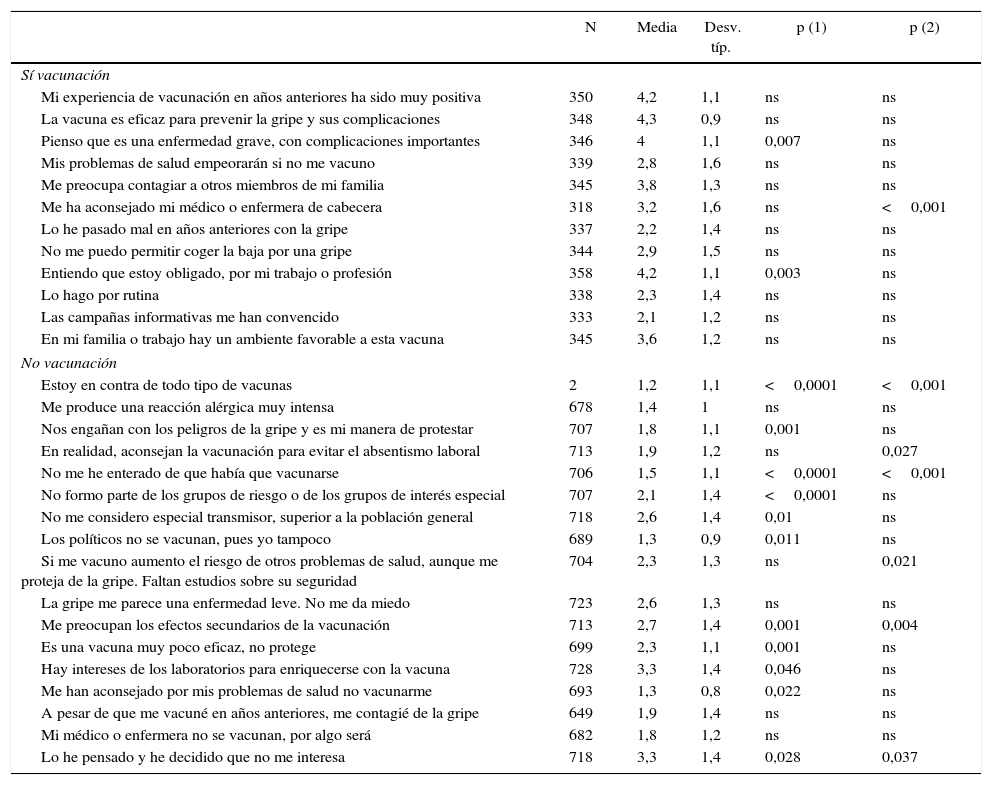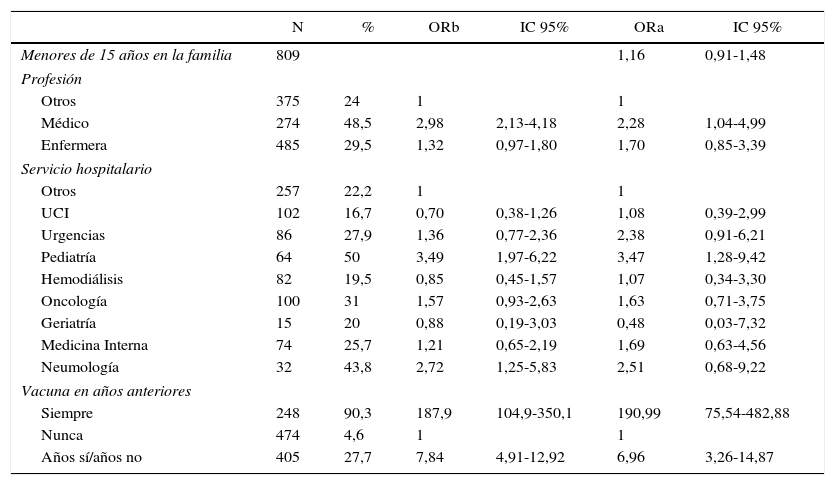La gripe constituye un importante problema de salud pública. El objetivo del estudio es conocer la cobertura vacunal y los factores motivadores de la vacunación en profesionales sanitarios de atención primaria y hospitalaria en Navarra.
MetodologíaEstudio analítico multicéntrico con diseño de cuestionario a partir de 3 fuentes: Kraut, CIBERESP y estudio cualitativo en universitarios. El cuestionario con las razones de vacunación consta de 29 ítems, remitido por correo electrónico, con datos profesionales, antecedentes de vacunación, situación actual e intención en el futuro. Se estudia el Ji cuadrado, odds ratio (OR), regresión logística y pruebas no paramétricas (Kruskall-Wallis y U de Mann-Whitney).
ResultadosSe obtienen 1.178 cuestionarios con tasas de cumplimentación del 27 y 24,7% en atención primaria y hospitalaria respectivamente. Tasa de vacunación global del 31,8%. Los factores predictores significativos de vacunación son: antecedentes de vacunación previa (ORa: 190,99), ser médico (ORa: 2,28) y trabajar en servicio de pediatría (ORa: 3,47).
El ítem con media más alta (4,3) en vacunados es «la vacuna es eficaz para prevenir la gripe y sus complicaciones» y en no vacunados (3,3) es « he decidido que no me interesa» en escala Likert.
Los sanitarios estiman que los compañeros de profesión y de trabajo se vacunan en cifras situadas en la zona media de la escala y con diferencias significativas entre vacunados y no vacunados (p<0,001).
ConclusiónPotenciar la información de las ventajas personales, familiares y profesionales de la vacunación e informar del coste social de la vacunación pueden aumentar las tasas de vacunación.
Flu represents an important problem for public health. The objective of the study is to establish the vaccination cover and the motivating factors of health professionals from the hospitals and primary healthcare in Navarra.
MethodMulti health centre analytical study by means of a questionnaire using 3 sources. Kraut, CIBERESP and a qualitative study in universities. The questionnaire with the reasons for vaccinations is made up of 29 items, sent by email with professional data of the healthcare workers, vaccination history information, current situation and future intentions. A study of the Ji square, odd ratio (OR), logistical regression, non parameter tests (Kruskall-Wallis and U of Mann-Whitney).
Results1,178 questionnaires are obtained with a 27% and a 24.7% completion rate in primary healthcare and hospitals respectively. Global vaccination rate of 31.8%. The predicting indicating factors for vaccinations are: history of previous vaccination (ORa: 190.99), be a doctor (ORa: 2.28) and workers in pediatric services (ORa: 3.47).
From the those vaccinated the item with the highest average (4,3) is that “the vaccination is efficient for the prevention of flu and the resulting complications” and from those not vaccinated(3,3) is “I’ve decided that I’m not interested” on the Likert scale.
Healthcare workers are of the opinion that their fellow professionals and health care colleagues vaccinate in numbers that would be the average on the scale with significant differences between those vaccinated and those not (P¿.001).
ConclusionImprove information on the personal, family and professional benefits of vaccination and inform that the social cost (effect) of the vaccination can increase the rates of vaccination.
Artículo
Comprando el artículo el PDF del mismo podrá ser descargado
Precio 19,34 €
Comprar ahora










